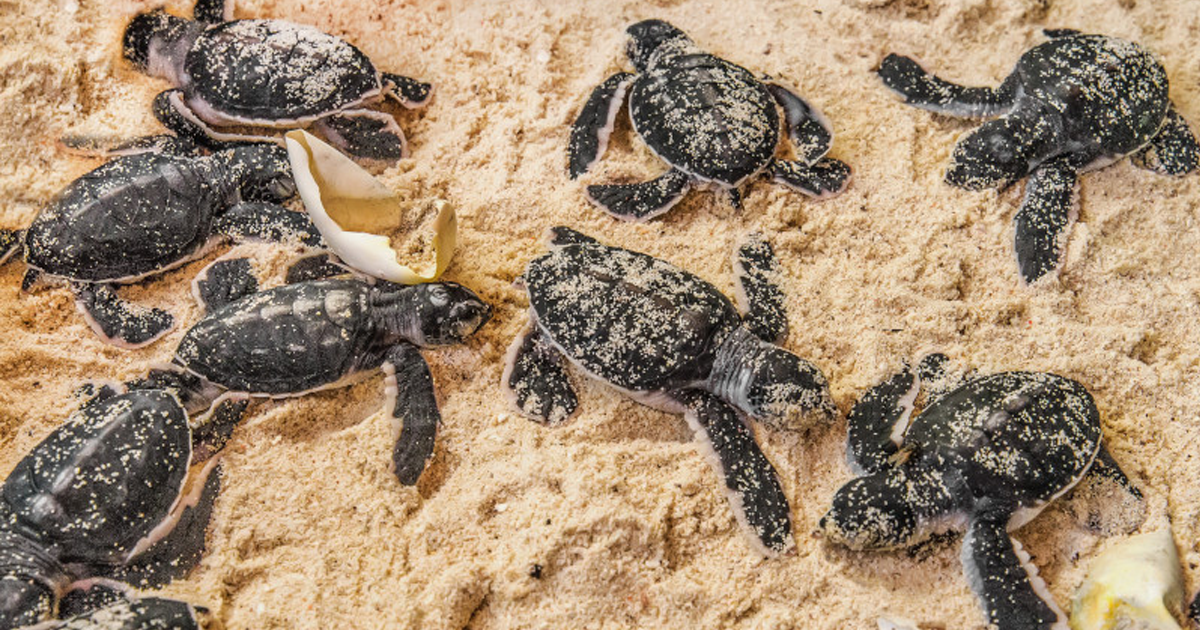Species Spotlight: Facts and Myths About Turtles
Turtles are fascinating creatures that inhabit a diverse range of ecosystems across the planet, including wetlands, drylands, and oceans. They have existed longer than the dinosaurs and have captured our imagination in popular culture.
To pay tribute to this magnificent animal and its crucial role in our ecosystem, Greater Good Charities is delving into the world of turtles to debunk common myths and provide essential facts about this amazing creature.
Fact: Turtles belong to the oldest reptile groups in the world
Turtles belong to a group of reptiles called Testudines, which also includes tortoises and terrapins. This group of reptiles dates back to the Triassic Period from around 230 million years ago, making them older than dinosaurs, crocodiles, and alligators.
 Photo © Greater Good Charities
Photo © Greater Good Charities
myth: Turtles Are Easy Pets
Turtles are often marketed as easy pets, but the truth is they need a lifetime of specialized care and a lot of room to grow.
Turtles are wild animals, used to large spaces and specific conditions. If they are not properly cared for, they will often die. Additionally, a National Center for Biotechnology study found that exposure to reptiles was a big risk factor in determining whether or not infants can get salmonella, even if they do not touch the reptile directly.
Fact: A Turtle’s Shell is Part of its skeleton
A turtle cannot leave its shell any more than we could walk out of our skeleton. Their shell is a living bone and its greatest defense, made up of modified bones from the rib cage, sternum, vertebrae, and pelvis, which have evolved to form a single unit. It protects the turtle’s vital organs and sometimes its head and continues to grow with the turtle.
 Photo © Greater Good Charities
Photo © Greater Good Charities
myth: Turtles Only Eat Lettuce
Different turtles eat different food depending on the environment they live in and the species of turtle they are. Sea turtles eat anything from algae to squid and jellyfish, whereas land-dwellers eat bugs, fruit, and grass. Some turtles are carnivores and require live food, like worms, while others are herbivores and omnivores.
Fact: Turtles Live a Long Life
While a turtle's lifespan can depend on its species, diet, and environmental factors, most turtles can live into their 50s. The larger species tend to outlive the smaller ones, with some turtles living as little as 10-20 years and others living as long as 150 years. The oldest ever recorded, Tu" i Malila, of Tonga Island, lived to be 188 years old.
myth: Turtles are Not in Danger
Sadly, according to the International Union for Conservation of Nature's Red List, 187 of the 360 known turtle and tortoise species are threatened, with 127 of those being endangered or critically endangered.
According to a study published by 51 global turtle and tortoise experts, more than half of the world’s turtle and tortoise species are threatened with extinction. The loss of habitat is the number one threat to turtles and tortoises globally, followed by pet trade, overconsumption of turtles for food and medicine, pollution, and climate change.
%20copy.jpg?width=1000&height=563&name=VS-Photograph_20231113_RR_SouthFloridaWildlifeCenter_017_%C2%A9GGC%20(1)%20copy.jpg) Photo © Greater Good Charities
Photo © Greater Good Charities
Turtles significantly contribute to our planet's biodiversity, including providing nutrients, dispersing seeds and spores, regulating other organisms, indicating wetland health, and so much more. We must protect this important species before it is too late.
Fact: You Can Help Protect Animals Like Turtles
Greater Good Charities is on a mission to protect habitat conservation worldwide threatened by extinction. We protect endangered species and the environment, all while promoting community education. Here are three ways you can help protect our planet.
- Share this article to raise awareness about incredible species like turtles.
- Take a clean-up walk with your friends or family and pick up trash in your community to keep it out of waterways and the bellies of animals like turtles.
- Donate to help us protect vulnerable species.


.jpeg)